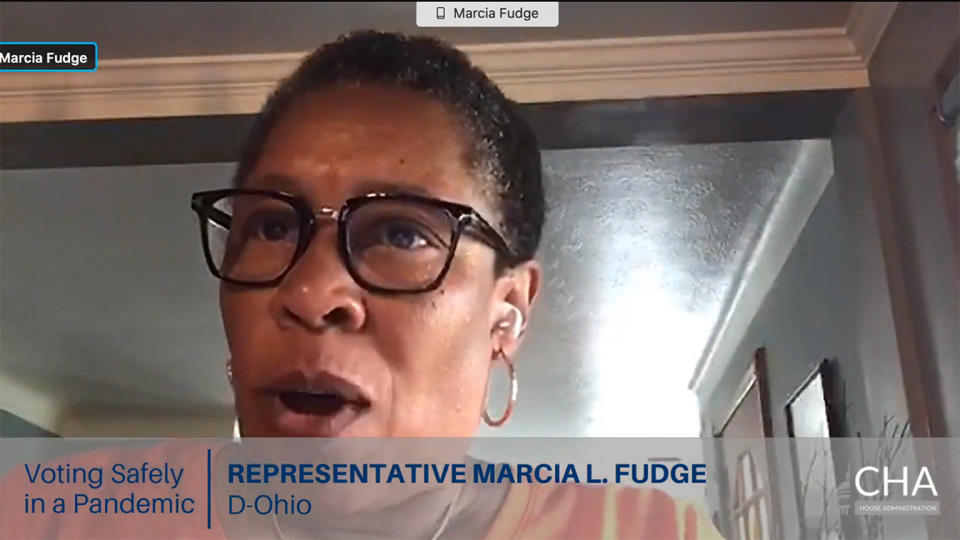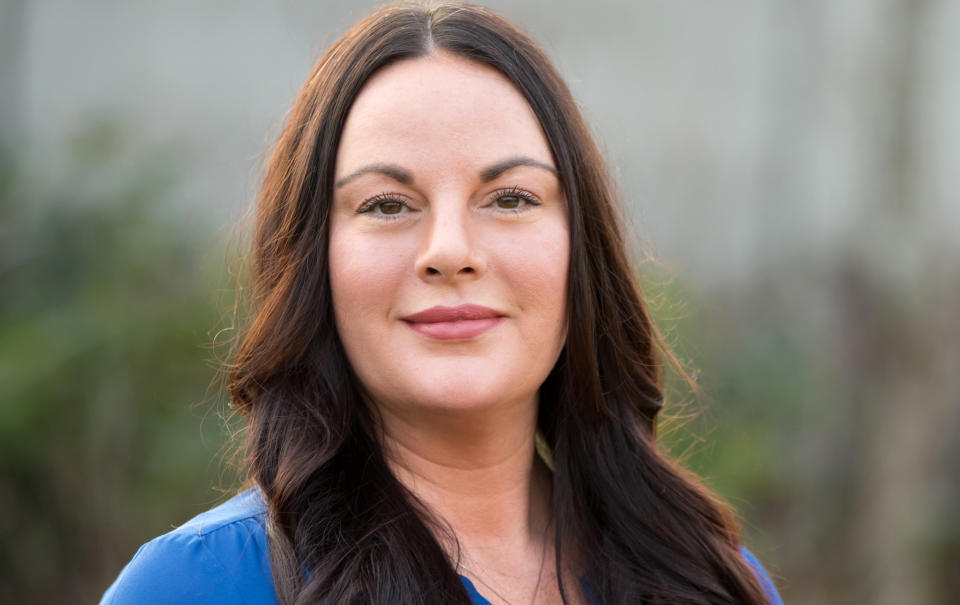'You don't want people to vote,' Democrat Marcia Fudge tells Republicans
WASHINGTON — It was Friday afternoon, the end of a long week, and Rep. Marcia Fudge, D-Ohio, had had enough, frustrated by a Republican colleague’s insistence that voting by mail was subject to fraud.
“Just admit you don’t want people to vote,” Fudge said. “Just admit that you don’t care.”
Fudge heads the Elections Subcommittee of the House Rules Administration Committee. She was specifically addressing Rep. Rodney Davis, R-Ill., the top Republican on the subcommittee.
The exchange occurred during a hearing titled “Voting Safely in a Pandemic,” one of two taking place on the issue during an otherwise quiet day on Capitol Hill.
“The only fraud is that they want people to believe that they care about the vote,” Fudge said. “They don’t.”
Fudge’s comments summed up many Democrats’ concerns about Republican resistance to mail-in voting. Because of the continuing coronavirus pandemic, election officials in many states are trying to make mail-in voting more accessible, as it is a safer way to vote than crowding into a polling station.
Republican lawmakers, however, have attempted to block Democratic efforts to expand mail-in voting. President Trump has repeatedly insisted that voting by mail is subject to fraud, and that such fraud is much more widely practiced by Democrats than Republicans.

Neither assertion is true. Trump himself votes by mail. So do many top officials of his administration.
Among those officials is Postmaster General Louis DeJoy, who Trump has tasked with making cuts to the Postal Service’s budget. Democrats argue that Trump and DeJoy are deliberately trying to make voting by mail more difficult.
Although he acknowledges that some of his actions have caused delays in mail delivery, DeJoy has denied being responsible for the recent removal of some mailboxes and sorting machines.
“The American public should be able to vote by mail,” DeJoy said at a recent congressional hearing.
Each state decides how its citizens vote. The patchwork of policies, combined with Trump’s own misleading statements, have left Americans unclear about how to participate in the democratic process. That the coronavirus pandemic is still killing more than 1,000 Americans each day only further complicates the issue.
“As Election Day draws closer,” Vianney Gomez and Bradley Jones of the Pew Research Center wrote earlier this week, “it is difficult to recall a presidential election for which the act of voting has been more contentious and potentially more confusing.”
Fudge and other Democrats are frustrated because they believe that evidence for the security of mail-in voting is squarely on their side. Among those testifying on Friday was Julie Wise, who administers elections in and around Seattle.
“Voter fraud is almost nonexistent,” Wise said, describing its incidence in King County, which has 1.3 million registered voters. In 2016, 17 ballots — or 0.00001 percent of those cast — were found to be fraudulent, Wise said.

And Wise said that ballot drop boxes, which are reinforced by thick steel and weigh more than a ton, are secure from tampering. Drop boxes, which are overseen by local election officials, allow people to cast a ballot without resorting to either mail-in or in-person voting.
“We even had one once hit by a school bus, and I can attest that the box, and its contents, were just fine,” Wise testified. “The school bus fared less well.”
Wise’s assurances, however, failed to convince Davis and most of his fellow Republicans, from congressional backbenchers to the president himself. “I want integrity in our election process,” Davis said. “Not because I want to suppress votes, but because I want every vote to count.”
But those calls, as well as invocations of bipartisanship, did not appear to convince Democrats.
“He keeps talking about bipartisanship,” Fudge countered later. “There is no bipartisanship with these people.”
Among the other officials testifying on Friday was Donald Palmer of the Election Assistance Commission, which he has led since 2019. In his testimony, Palmer, a Trump appointee, said there are “significant challenges” to voting by mail.
But it was Fudge’s anger that was most memorable, crystallizing Democratic fears and frustrations about what could happen on Nov. 3, as Americans vote in what Trump himself described as the most consequential election in U.S. history.
“They play all of these games,” an exasperated Fudge said, describing what she said were various Republican efforts to disenfranchise voters. “Let’s stop the charade.”
_____
Read more from Yahoo News:
You don't need the U.S. Postal Service to deliver your mail-in ballot
'I trusted them.' Some 'Build the Wall' donors feel cheated by Bannon. Some don't care.
Exclusive: DHS warns of fake election websites potentially tied to criminals, foreign actors
Oleandrin, touted as COVID-19 cure, has no scientific support




